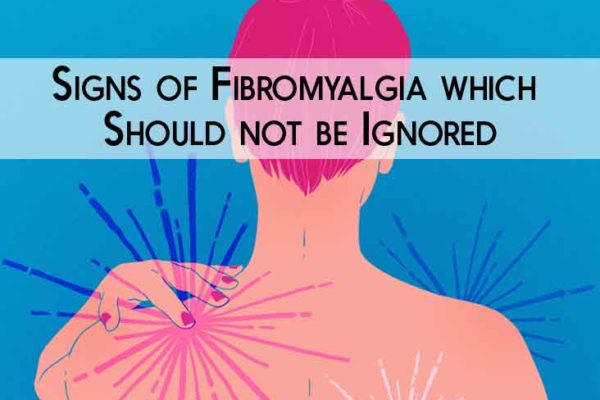Fibromyalgia, a chronic condition characterized by widespread musculoskeletal pain, fatigue, and sleep problems, often leaves sufferers feeling exhausted and frustrated. Poor sleep is a common symptom, creating a vicious cycle where pain and fatigue worsen, making sleep even more difficult. Fortunately, there are various strategies and sleep aids that can help improve sleep quality for those with fibromyalgia.
Understanding Fibromyalgia and Sleep
Fibromyalgia disrupts sleep in several ways:
- Pain: The widespread muscle pain associated with fibromyalgia can make it difficult to fall asleep and stay asleep.
- Fatigue: Chronic fatigue associated with fibromyalgia can lead to excessive daytime sleepiness, interfering with restful nighttime sleep.
- Non-Restorative Sleep: Even when people with fibromyalgia sleep for extended periods, they often wake up feeling unrested and fatigued. This is due to disturbed sleep patterns and the inability to enter deep, restorative sleep phases.
- Sleep Disorders: Fibromyalgia is also linked to sleep disorders like restless leg syndrome (RLS) and obstructive sleep apnea (OSA), further contributing to poor sleep quality.
Addressing Sleep Issues: A Multifaceted Approach
Addressing sleep problems in fibromyalgia requires a multifaceted approach that combines lifestyle changes, behavioral therapy, and, in some cases, medical interventions.
1. Lifestyle Modifications for Better Sleep
- Regular Sleep Schedule: Establish a consistent sleep-wake routine, going to bed and waking up at the same time each day, even on weekends, to regulate your body’s natural sleep-wake cycle.
- Relaxing Bedtime Routine: Wind down an hour or two before bed with calming activities like taking a warm bath, reading, or listening to relaxing music. Avoid stimulating activities like watching TV or working on electronic devices.
- Optimize Sleep Environment: Create a dark, quiet, and cool bedroom conducive to sleep. Use blackout curtains, earplugs, or a white noise machine to minimize distractions.
- Limit Caffeine and Alcohol: Avoid caffeine and alcohol in the hours leading up to bedtime, as these substances can interfere with sleep quality.
- Regular Exercise: Regular physical activity can improve sleep quality, but avoid exercising too close to bedtime. Aim for at least 30 minutes of moderate-intensity exercise most days of the week.
2. Cognitive Behavioral Therapy for Insomnia (CBT-I)
CBT-I is a type of therapy that teaches people with insomnia to identify and change negative thoughts and behaviors that interfere with sleep. CBT-I techniques can help people with fibromyalgia:
- Challenge Negative Thoughts: Identify and address negative thoughts about sleep, such as “I’m never going to get enough sleep.”
- Establish Sleep Rituals: Develop consistent sleep hygiene practices, like taking a warm bath before bed or reading a book.
- Reduce Worry: Learn techniques to manage stress and anxiety, such as relaxation exercises or mindfulness meditation.
3. Medications for Sleep
Your doctor may recommend medication to help you sleep better if lifestyle modifications and CBT-I are not enough. These medications can be effective, but it’s essential to discuss potential side effects and interactions with your doctor:
- Over-the-Counter (OTC) Sleep Aids: OTC medications like diphenhydramine (Benadryl) or doxylamine (Unisom) can help with short-term sleep problems, but their long-term use is not recommended.
- Prescription Sleep Aids: Prescription medications like zolpidem (Ambien), eszopiclone (Lunesta), and ramelteon (Rozerem) can be effective for insomnia, but they are often used for short-term treatment due to the risk of dependence.
- Antidepressants: Certain antidepressants, such as tricyclic antidepressants (TCAs) and selective serotonin reuptake inhibitors (SSRIs), can improve sleep quality in some individuals with fibromyalgia.
- Muscle Relaxants: Muscle relaxants, such as cyclobenzaprine (Flexeril) and carisoprodol (Soma), can help reduce muscle pain and spasms, leading to better sleep.
4. Complementary and Alternative Therapies
Complementary and alternative therapies may also offer relief for fibromyalgia-related sleep problems. Always discuss these options with your doctor before trying them:
- Yoga and Tai Chi: Gentle stretching and mindfulness practices can help reduce stress, improve sleep quality, and promote relaxation.
- Massage Therapy: Massage can reduce muscle tension and pain, promoting relaxation and better sleep.
- Acupuncture: Acupuncture may help regulate the body’s natural sleep-wake cycle and reduce pain.
- Herbal Supplements: Some herbal supplements, like valerian root, chamomile, and melatonin, are believed to have calming effects and may aid in sleep. However, it’s crucial to talk to your doctor before using any supplements, as they can interact with other medications.
Finding Relief: A Collaborative Approach
Improving sleep in fibromyalgia requires a collaborative effort between you and your healthcare provider. Working together, you can identify the underlying causes of your sleep difficulties and create a personalized plan to address them. Don’t hesitate to advocate for your needs and seek out multiple perspectives to find what works best for you. Remember, getting adequate sleep is crucial for managing fibromyalgia symptoms and improving your overall well-being.






